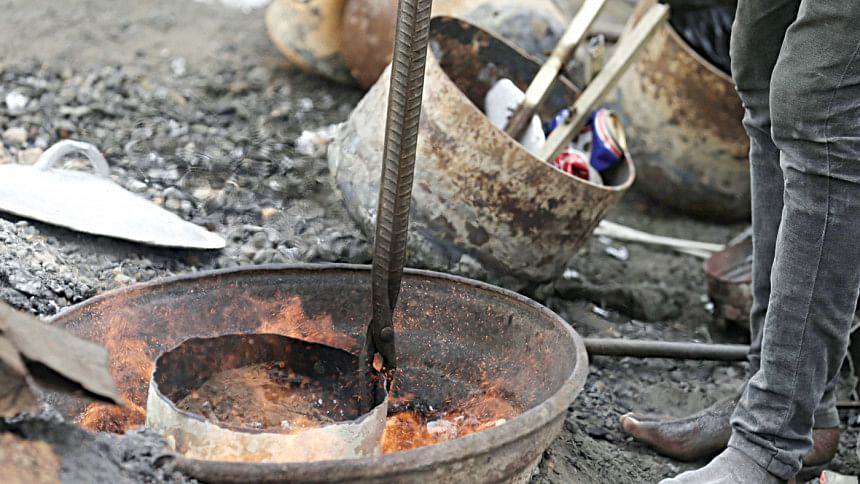Lead poisoning and stunting in Bangladesh: a missing link

Long-term malnutrition might at first seem like a medical condition and its remedial measures easy, using balanced diet, appropriate for age, along with needed micronutrients. In Bangladesh, around 36% of the children are suffering from chronic malnutrition (stunting or low height-for-age). Not only they are more vulnerable to infections, but more importantly, they may not develop their full potential physically and mentally in their adulthood. Malnutrition in childhood and pregnancy has many adverse consequences for child survival and long-term well-being. It also has far-reaching consequences for human capital, economic productivity and national development overall.
This is a matter of great public health significance because there is no single intervention that has worked out. The one way to cure malnutrition is to prevent that from occurring in the first place and efficiently manage when that has already occurred. The problem of stunting is greater in the lower-middle-income countries, while less than half of all under-five children live in these countries.
Bangladesh is particularly vulnerable to high levels of lead exposure, due to poorly enforced environmental regulations and high prevalence of malnutrition. Exposure to a lead-contaminated environment is the most common cause, along with exposure to lead present in gasoline, certain paints, contaminated spices, aluminium cookware, recycling of batteries and battery-operated auto rickshaws.
Lead is a neurotoxin, which is associated with developmental and behavioural problems in children. Lead poisoning can be especially detrimental in pregnant women and young children living in low socio-economic conditions, who are often more likely to be ingested lead-contaminated dirt and dust.
For many years, environmental lead has been known to be a health and developmental hazard in young children. A recent study in Bangladesh reported a strong likelihood linking lead exposure and stunting. The study observed a significant relationship between the blood level of lead (BLL) and stunting. Hence there is a great need to find ways to reduce children's exposure to lead as well other environmental pollutants. Prevention of exposure to lead may reverse childhood stunting.
While the ideal blood concentration of lead is zero, a recent study observed the national mean of BLL among Bangladeshi children below 19 years of age at 7mg/dl. This level is associated with a loss of major intelligence among children and may also lead to stunted children.
Appropriate measures are a must to minimise lead in the environmental dust or fumes by applying proper technical control measures at its source. The rapidity of the response is crucial; the longer the exposure, the greater will be the negative impact on the population with health and economic consequences.
Dr Mahfuzar Rahman is the Country Director of Pure Earth, Bangladesh. E-mail: [email protected]

 For all latest news, follow The Daily Star's Google News channel.
For all latest news, follow The Daily Star's Google News channel. 



Comments